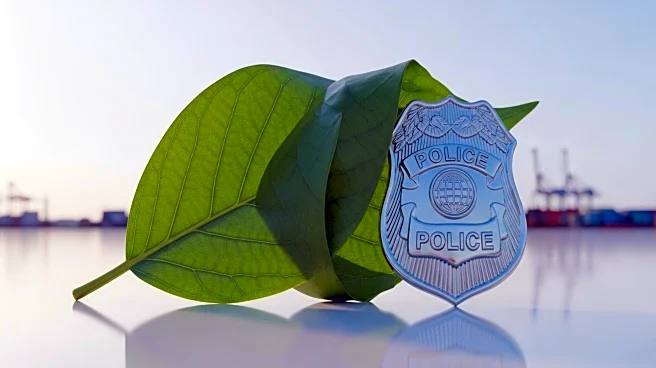What's Happening?
Belgian police have ended a Greenpeace blockade at the Zeebrugge LNG terminal after 29 hours. Greenpeace activists used small boats and inflatables to protest against fossil gas imports, including U.S. LNG, calling for a phase-out by 2035. The protest coincided with EU discussions on sanctions against Russia, aiming to halt Russian gas imports. The blockade disrupted LNG carrier traffic, affecting vessels from Norway, Spain, and the U.S. The protest highlighted Greenpeace's stance against fossil fuels and their environmental impact.
Why It's Important?
The protest underscores the growing environmental activism against fossil fuels and the pressure on governments and industries to transition to renewable energy sources. The disruption at a major LNG terminal highlights the vulnerability of energy supply chains to activist interventions. It also reflects broader debates on energy security and climate change policies in Europe, as countries balance economic interests with environmental commitments. The incident may influence public opinion and policy decisions regarding energy imports and sustainability goals.
What's Next?
The end of the blockade allows the resumption of LNG carrier traffic, but Greenpeace's actions may prompt further protests and discussions on energy policies. The EU's ongoing sanctions talks and Greenpeace's demands could lead to changes in energy import strategies and increased focus on renewable energy investments. Stakeholders, including governments and energy companies, may need to address the concerns raised by environmental groups to mitigate future disruptions.
Beyond the Headlines
The protest raises questions about the role of civil disobedience in environmental advocacy and the ethical implications of fossil fuel reliance. It may also influence cultural perceptions of energy consumption and sustainability, prompting shifts in public attitudes towards environmental responsibility.










